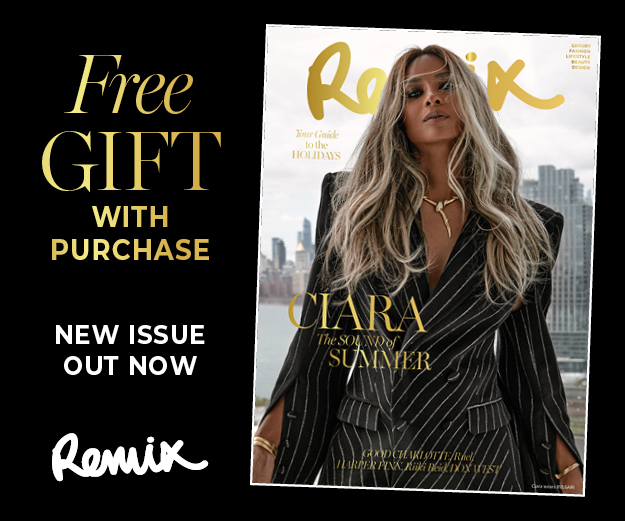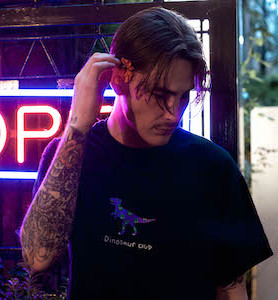Rising New Zealand star Lydia Peckham on her love of home, Hollywood and red carpet dressing
Of New Zealand’s many exports and greatest success stories (of which we have many), none are more deserving of their flowers than Lydia Peckham. I know this personally, because we’ve been friends for close to 20 years. From charades at class sleepovers to school productions, Shakespeare competitions, and her inevitable departure to Toi Whakaari after high school, Lydia has always been a star. But it’s not only her talent and staggering beauty that make her shine; it’s her rugged spirit, her full heart, and her curiosity for the world.
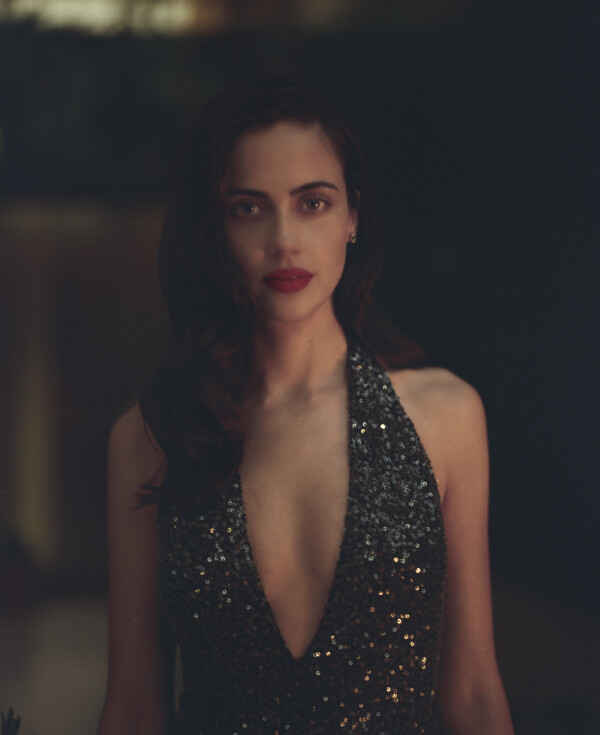
You might not recognise her from Kingdom of the Planet of the Apes (she was an ape, after all), but that was one of her latest breakout roles. Now, returning to home soil after two red carpet premieres, Lydia prepares for what’s next—Robin Hood, which officially released yesterday, and Nuremberg, scheduled for cinematic release later this month. Now that there’s a brief moment of downtime in her schedule, we caught up to talk about everything chaotic and cool from the last few months.
Hi darling. Firstly—how cool is this?? How lucky am I to be talking to you about this monumental moment in your career? Although anyone who knows you could have seen this on your horizon. What have been some of the best moments in your career so far?
This is so cool!! It’s kind of surreal to think back to our high school selves with these faraway dreams and now look at us! Oh boy, that’s a big question! There have been so many exhilarating, pinch-me, inspiring moments. My first film, Only Cloud Knows, was directed by Feng Xiaogang. He didn’t speak English, and on my first day, he used a translator to say, ‘If you fall, I will catch you.’ It was a beautiful moment about trust and leading with an open heart inside the work.
A real pinch-me moment was the first week of filming Nuremberg. We were shooting the courtroom scenes, and I was literally watching Russell Crowe and Michael Shannon, two powerhouse performers, giving Oscar-worthy performances. And on Robin Hood, one of my favourite moments was a fiery argument scene with Sean Bean, who plays my father, the Sheriff of Nottingham. There was an electricity in the air, it felt like an exhilarating game of tennis, firing energy back and forth, completely alive.
What’s the dream? What would be the ultimate project for you?
The dream is always to keep growing and exploring different facets of the human experience through different characters. I’ve been pretty lucky so far to have been stretched in all sorts of directions, from playing an ape, to playing a power-hungry royal, to the sweet best friend. I’d love the opportunity to keep exploring the range of character, form, genre. The ultimate goal though, is people. I have such talented creatives in my life, who create boundary-pushing, experimental work. I'd love to be a part of bringing those alternative, less ‘commercial’ ideas and films into the conversation. I think they have a really important voice, not only to offer humanity but also the imagination.
What drew you to your role in Nuremberg, and how did it challenge you as an actor?
Everything! James Vanderbuilt had written an incredible script, based on the Jack El-Hai’s book The Nazi and the Psychiatrist. I didn’t know there were psychiatrists in the army in World War II—it’s an interesting and relevant lens to look through in the face of ‘war crimes’, what happens to the human psyche to allow such monstrosities to happen. And then obviously, there’s the cast, it’s like stepping into a masterclass, the challenge of bringing your A game and holding your own against the likes of Rami Malek is daunting at first, but the beauty of great actors (from my experience), is it’s usually all about the work, so the fear dissipates pretty quickly and you just start collaborating on how to create a beautiful scene together.
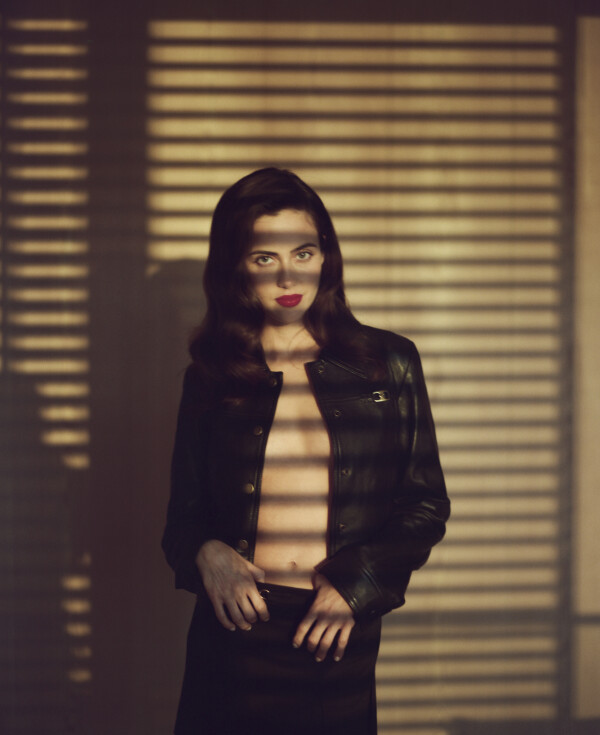
What’s it like working with some industry heavyweights?
It’s equal parts terrifying and thrilling! But mostly, it’s inspiring. You learn so much just by watching how they handle themselves, their precision, patience, work ethic, humour. The best ones have this deep generosity that sets the tone for everyone on set.
Robin Hood must have been a completely different vibe—what was the most fun or unexpected part about playing in that world?
Completely different! Robin Hood was wild; my character pushes the boundaries and walks a fine tightrope of ‘you go girl!’ and ‘I think you just went too far,’ which is such fun! She’s haunted by dream-visions that blur prophecy and recklessness, and she uses her sexuality and her wild spirit as tools to shatter the roles women are supposed to play. Priscilla is a free spirit. The costumes and sets are also like stepping back into your childhood fantasies of playing princesses and Princes, so that's fun!
Did filming for these projects overlap at all? How do you find it moving between two very different characters?
There were about six months between filming Priscilla (Robin Hood) and Lila (Nuremberg). I usually find a ‘way in,’ which changes depending on the character. For Lila, who’s a journalist, I wrote articles in her voice and explored various themes, including the camaraderie between women in the 1940s and losing a brother in WWII. Priscilla, on the other hand, is emotionally impulsive, so music was my entry point. I made playlists for each of her moods from the raw, animalistic energy of Hot Gum by Sofia Isella to the haunting intensity of Sacrifice by Lisa Gerrard.
Do you approach roles differently now than when you first started? What’s changed for you throughout the years, from drama at Nelson College for Girls, to Toi Whakaari, and now, with each new project?
Completely. When I first started, there was this fear of ‘getting it ‘right’, which is kinda a ridiculous concept, and ironically, it usually blocks you. I think you have to figure that out for yourself though. With time and experience, you start trusting your instincts more and leaving space for spontaneity. Staying grounded and building a life and identity that’s not defined by success along have also been key for sustaining all the highs and lows.
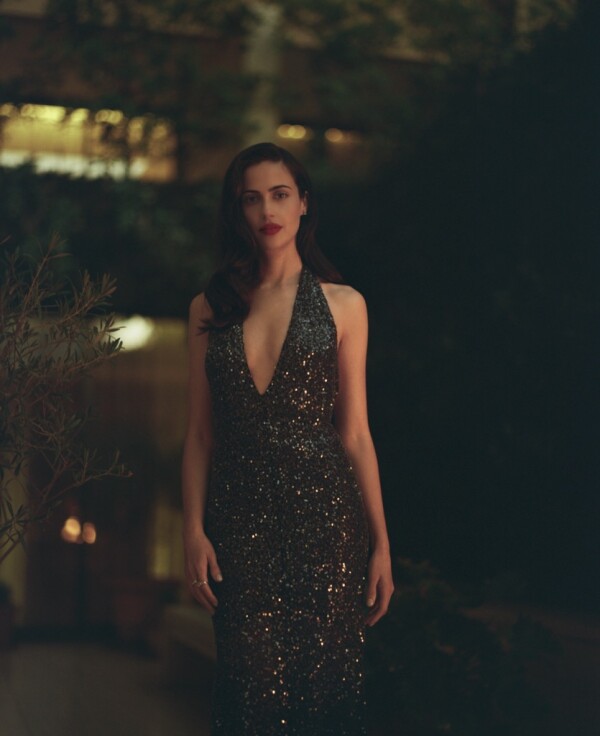
Are there aspects of either role that you’d carry with you into future projects?
I think you carry a part of each character with you, in a way, they lived within you the whole time, you’ve just honed and breathed oxygen to that part of yourself. In terms of craft and technical skills you learn on set, you bet, that’s a muscle that just keeps growing.
Tell me more about red carpet dressing: what stylists do you work with? How do you find and settle on looks that feel like such a true representation of you?
I love working with a stylist called Ali Mandelkorn; to me, it’s about someone being open to that initial conversation of ‘here are my vague ideas’ and then they collaborate from that starting point. For example, for Nuremberg we talked about hinting at ‘the Old Hollywood’ era and talked about designers that we were excited to start a relationship with. I wore Patou; Guillaume Henry has this remarkable ability to merge heritage with modernity, which was perfect. What I love about collaborating with stylists like Ali, is that they understand storytelling through clothing and how a silhouette, a fabric, or a single detail can evoke an entire era or emotion. It’s never just about the look; it’s about what the look communicates.
What does red carpet day look like? How early do you start glam? What happens?
It usually starts about three hours before, but honestly, the energy begins as soon as I wake up. I’ll have a playlist on depending on the vibe of the night. My glam team, Kara (makeup) and Jenny (hair), are magic. We worked together for the Apes premier,e and it was an instant connection. We bounce ideas and collaborate on the overall look, and then they create something beyond what I imagined.
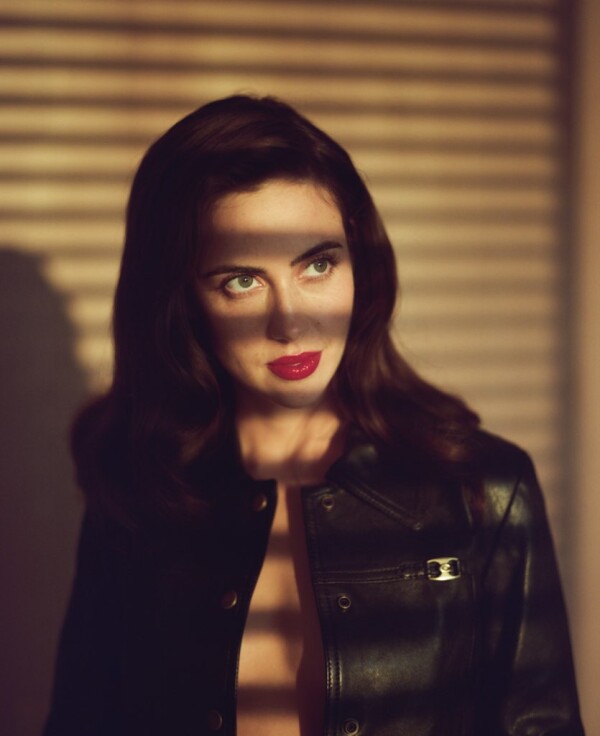
Any rituals to quell the nerves? Do you get nervous?
Always. I'm learning how to manage it. Different moments require different tactics. I had a drama teacher at Toi Whakaari who once said, ‘if you feel nervous ask yourself ‘do you want to go into that callback, or step onto that red carpet, because if not, we have the power to walk away’, and usually the answer is, ‘F**k yes, I want to’. It’s kinda like playing your psyche at its own game. Adrenaline is a powerful tool as well. Usually, when I feel the most nervous, is in the quiet moment before I step into whatever it may be, and usually, if all goes well, adrenaline kicks in and takes over from the nerves.
Does any of this actually feel real? Or is it quite a surreal experience, even still?
I came back from LA yesterday after a surreal whirlwind of a week, and as soon as I stepped onto home soil, it sort of felt like this distant dream. I like that contrast ,though. One moment I’m walking the red carpet in inhumane high heels and the next I’m putting on my hunting and fishing fleece to go cut gorse out in the garden. There are flashes where it hits me, though, and I feel really proud of myself. Sometimes I imagine how proud my dad would be, and it gives this beautiful perspective of my journey.
Not many people know about your upbringing, but I think it’s pretty cool to share. How did your journey out to New Zealand at a young age, and growing up in rural Nelson, shape the kind of creative (and person) you are today?
I had quite a nomadic childhood. I watched my parents take risks and follow their impulses of life's adventures over the fear of routine and stability. I guess that nurtured my spirit and love of being in these transient, unknown spaces of life. I get claustrophobic with too much routine and predictability. I think also growing up surrounded by so much nature taught me to be resourceful, not take life too seriously and the power of imagination.
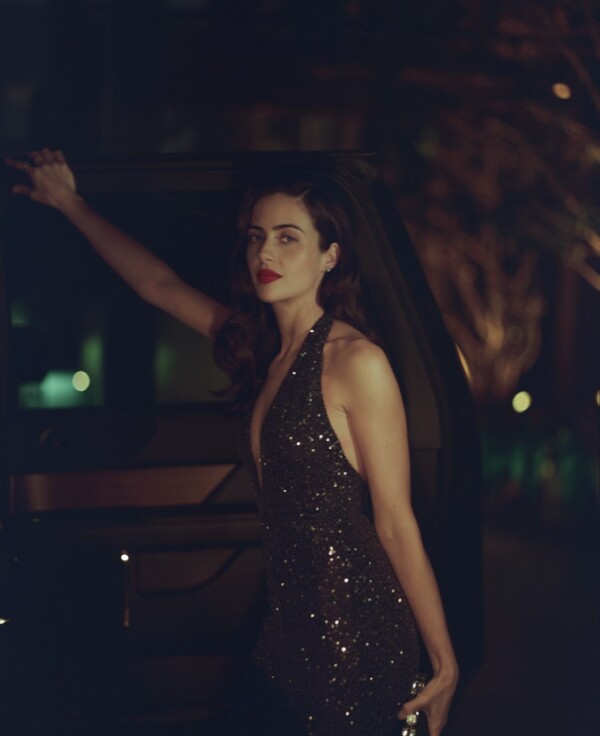
How important have family and friends been over these years?
I know it's generic to say this, but they really are my rocks. This industry can be intense, rejection, limbo, fate outside your hands, my family and friends give me life force that keeps me buoyant and in perspective of what’s important. I have to give a shout out to my partner William, he’s lived all those moments with me, from making short film together on Wharariki beach in the blistering winter winds, to coaching me through the ‘what am I doing with my life' moments, to me telling him to brush up on his American accent as my scene reader, to popping the champagne bottle for the big wins, to cutting shapes on the d floor with some of the world’s greatest actors.
Home is still New Zealand, right? Northland? And am I right in thinking your mum is up there now too? How does having this as a base keep you feeling grounded, like yourself?
Yes, home is still New Zealand, and I feel no desire for that to change. Projects are being filmed all over the world, so the idea that you need to live in America feels obsolete. It certainly keeps me grounded. I live in a tropical forest, anyone that's a guardian of the land will know the never-ending love you can pour into it. The garden gives me a sense of tangibility, the first basil seed that sprouts, the cabbage tree in full flower. I just ordered 10 tonnes of mulch, not realising that's enough to do a football field, so we now have a HUGE mountain in the driveway. That’s the next project.
Outside of work, what makes your heart sing right now?
My sister Scarlett is a musician, an amazing composer. Her latest album Idolisation makes my heart sing. I feature on one of her tracks called ‘When We Dance’, that’s a very cool feeling, to collab with family. Another obsession is my Ooni, I got it for my birthday and perfecting the pizza is a constant chase. Having friends around for a pizza party and bonfire makes my heart happy.


